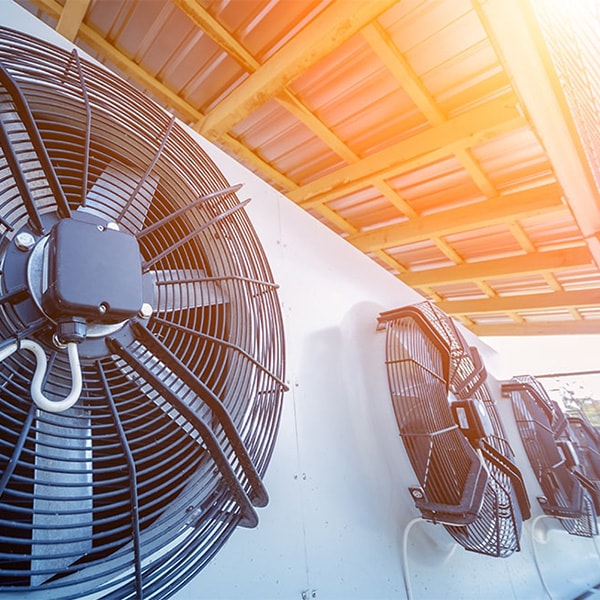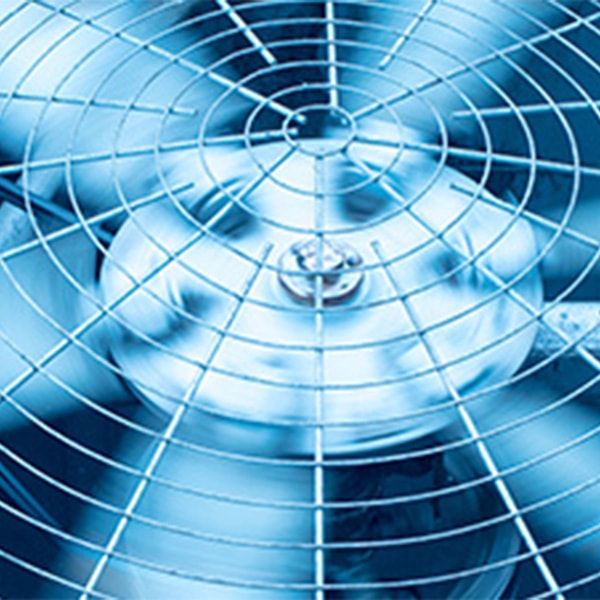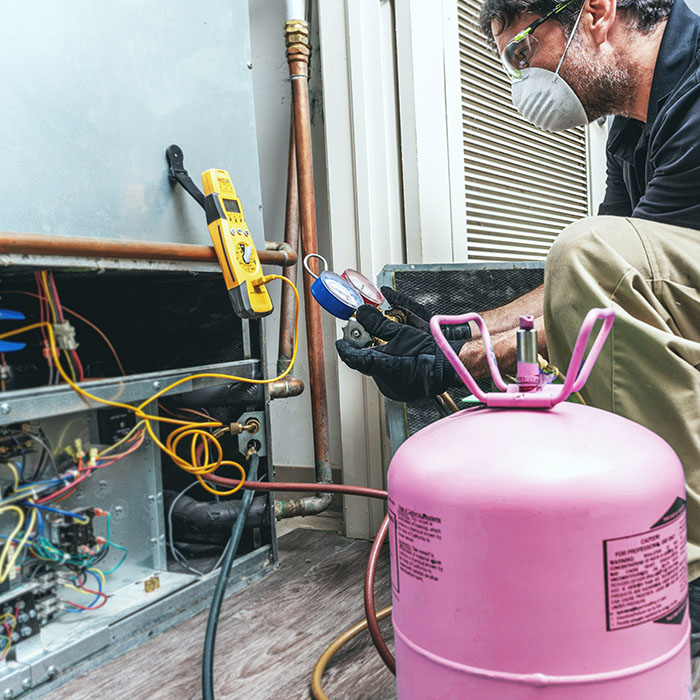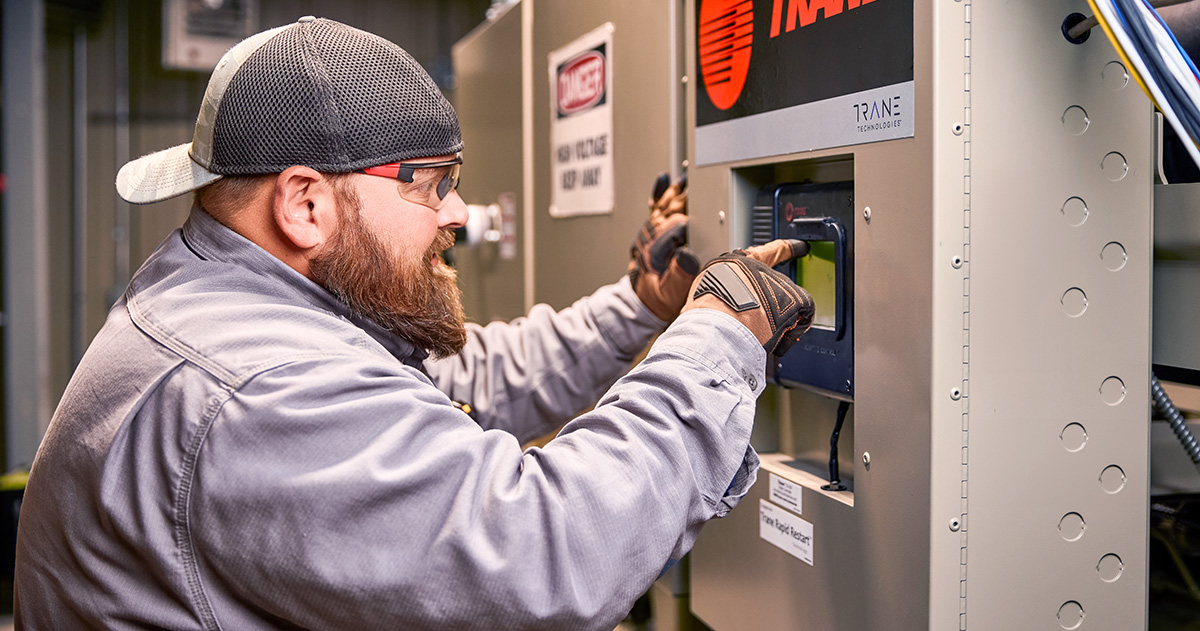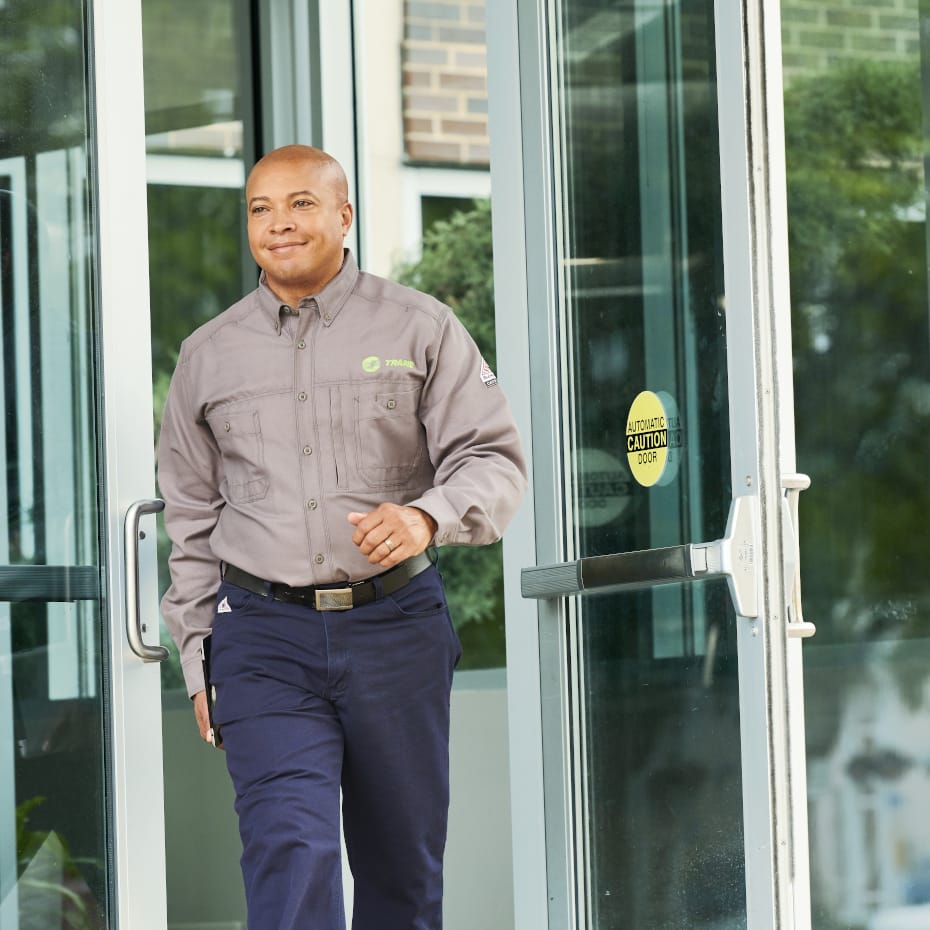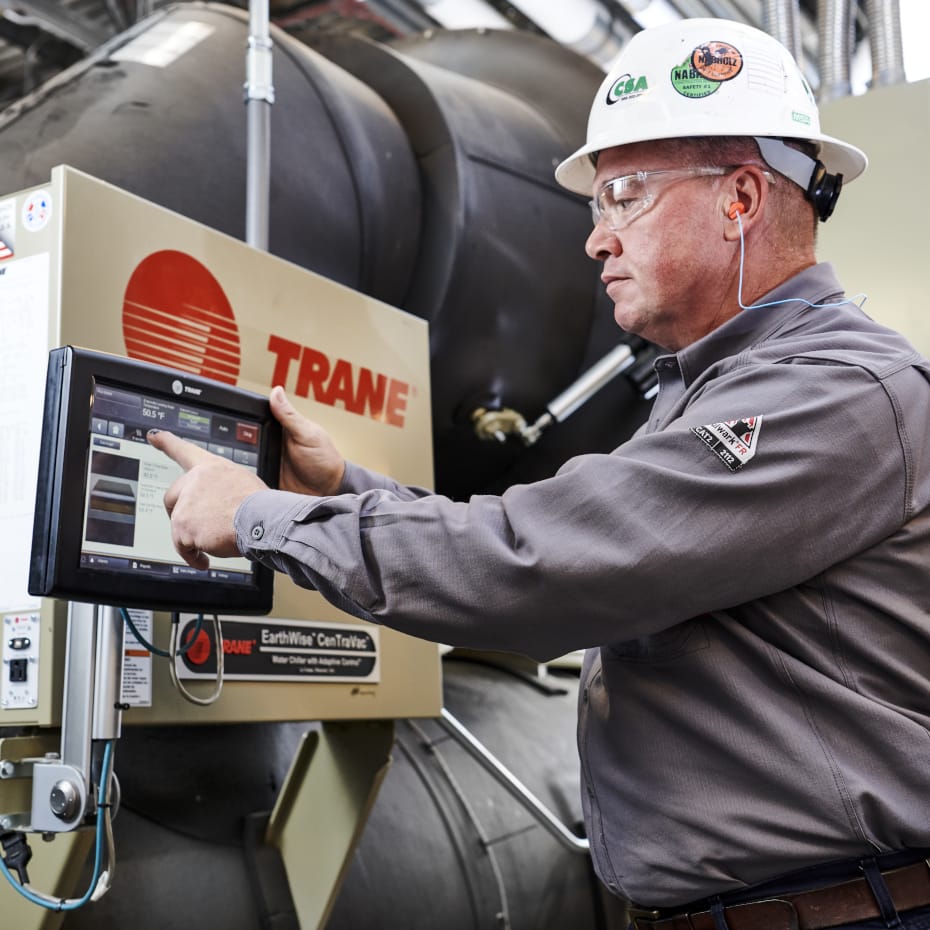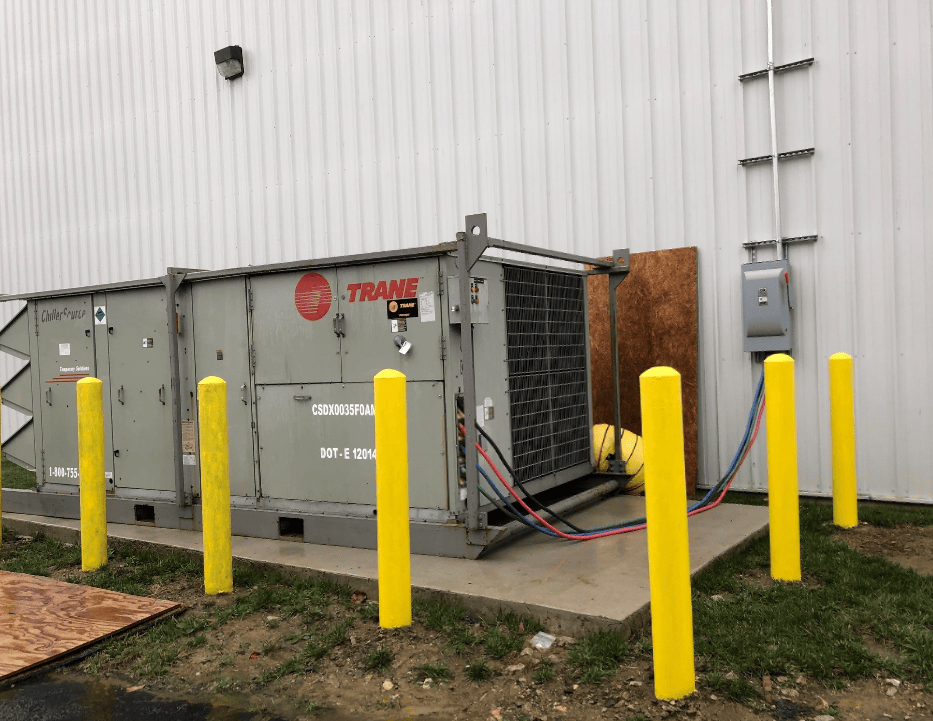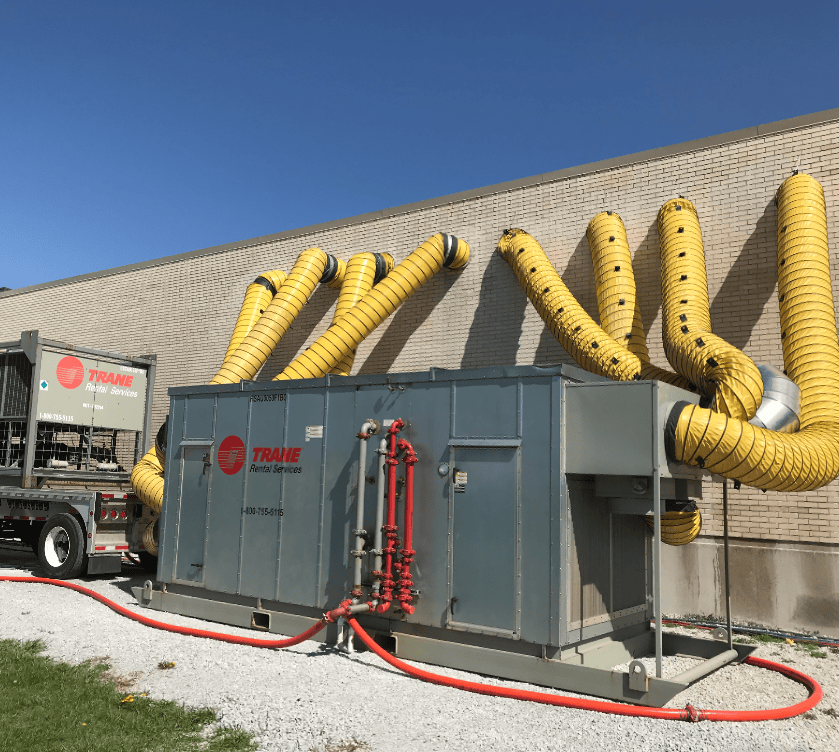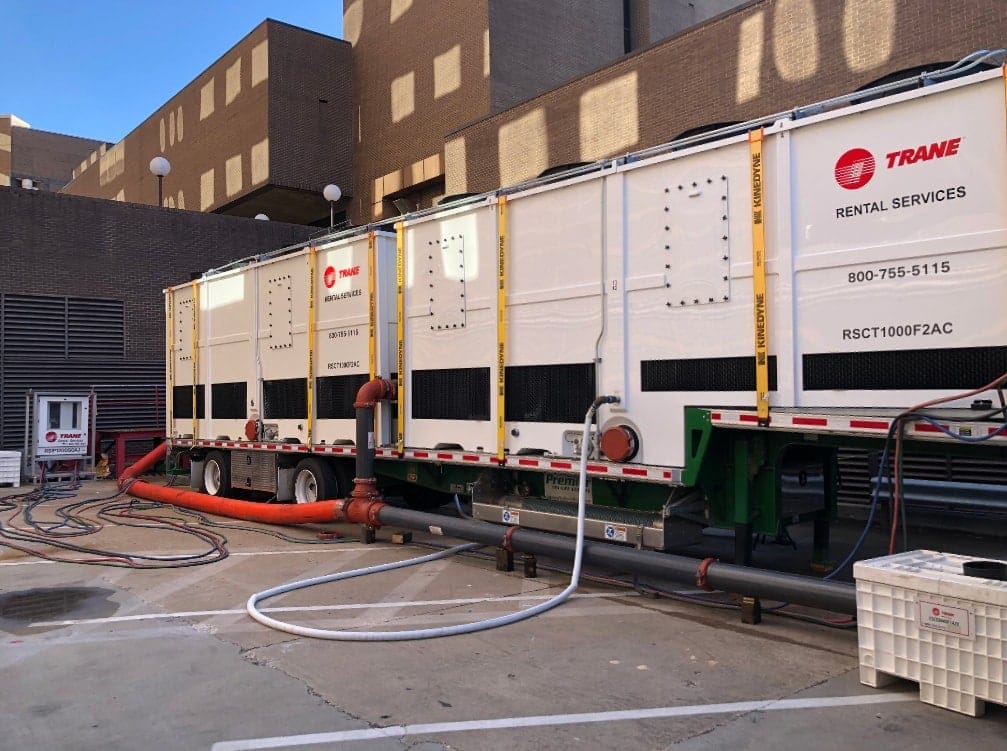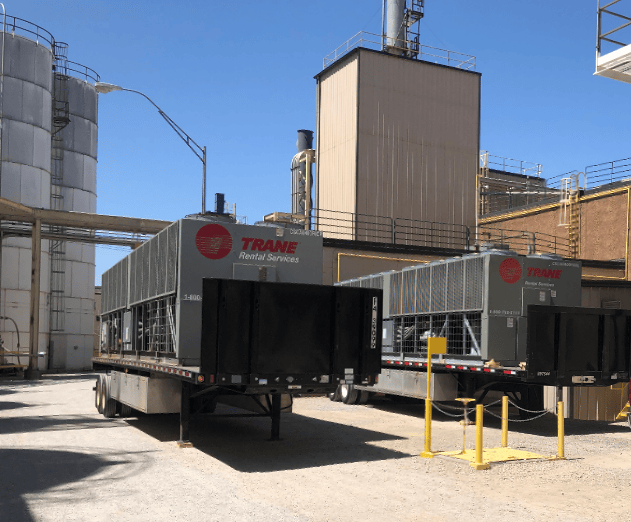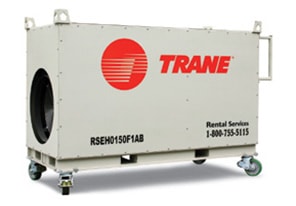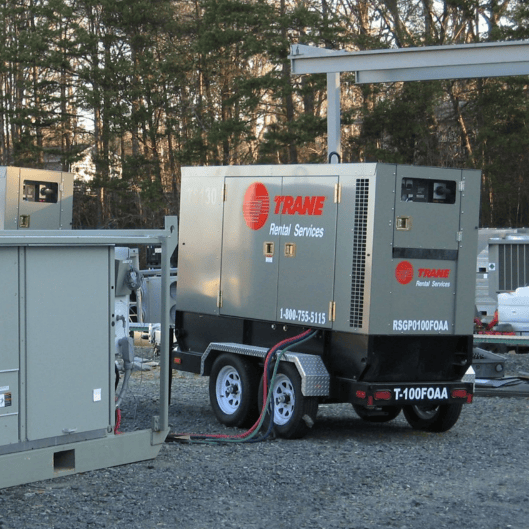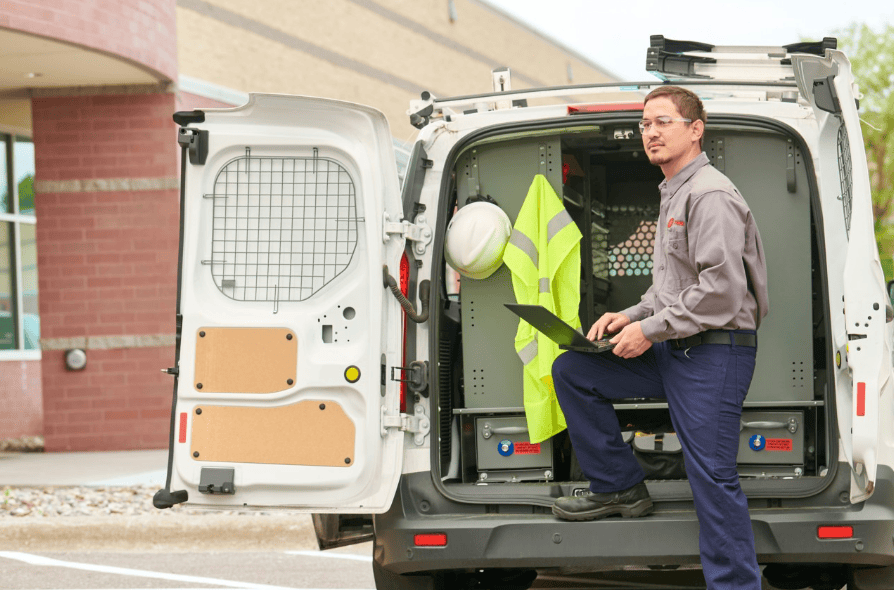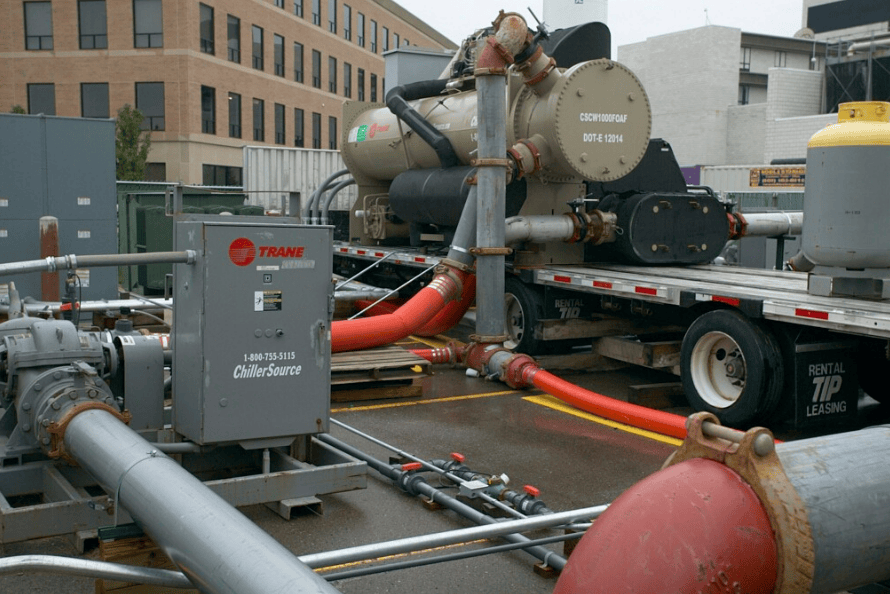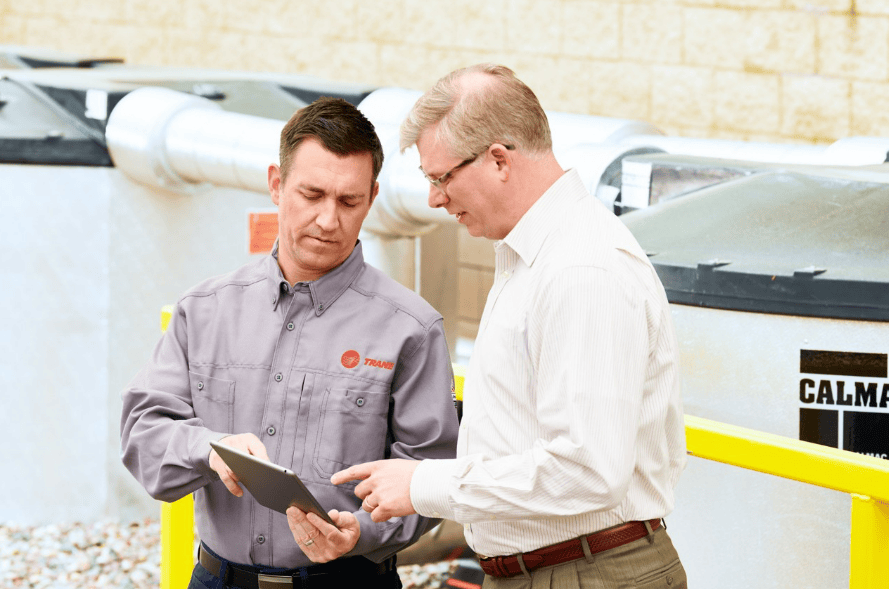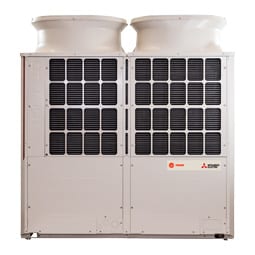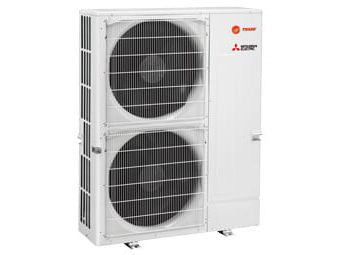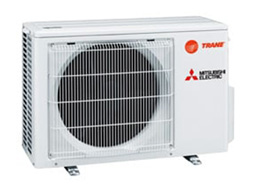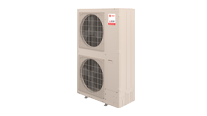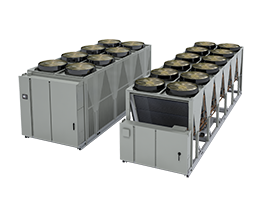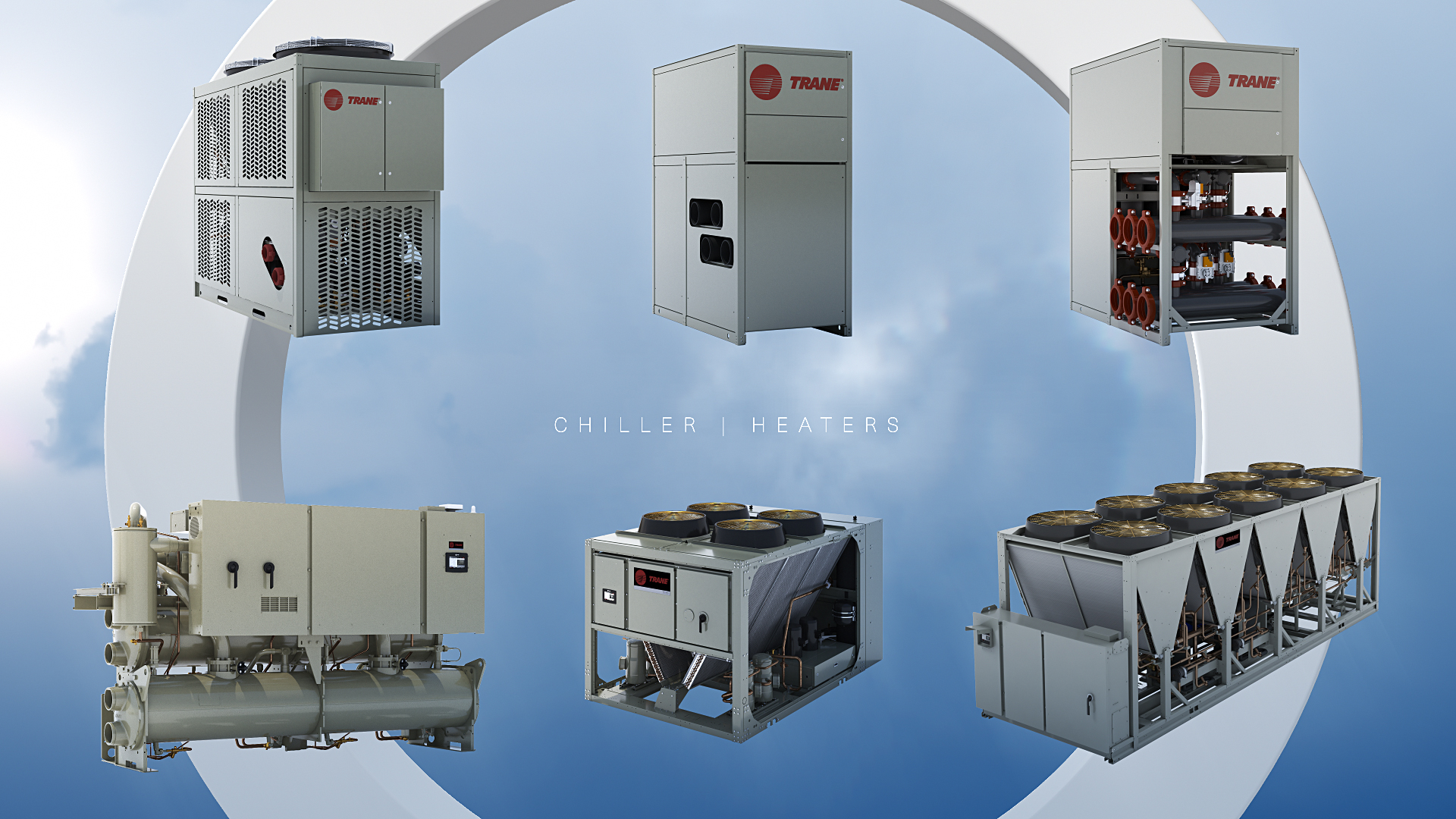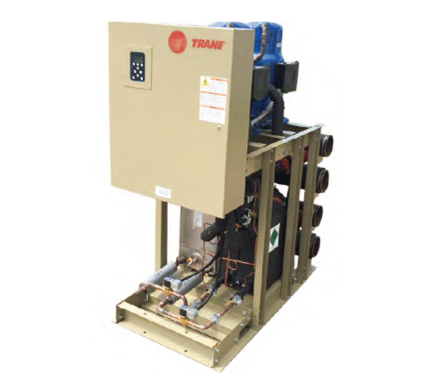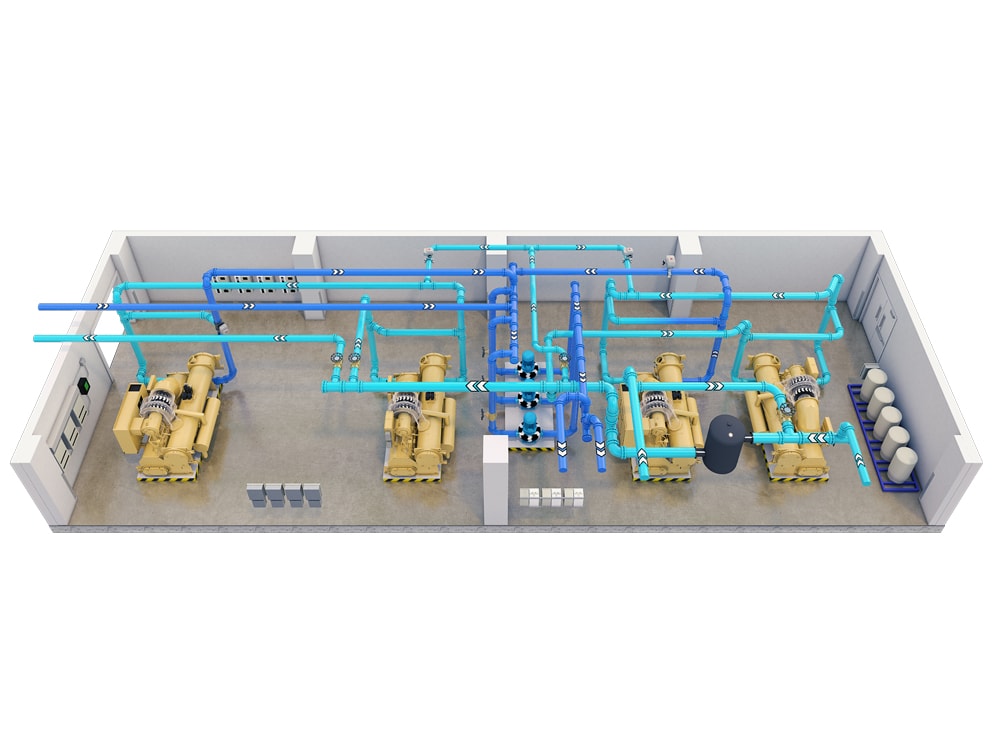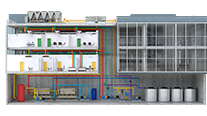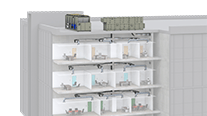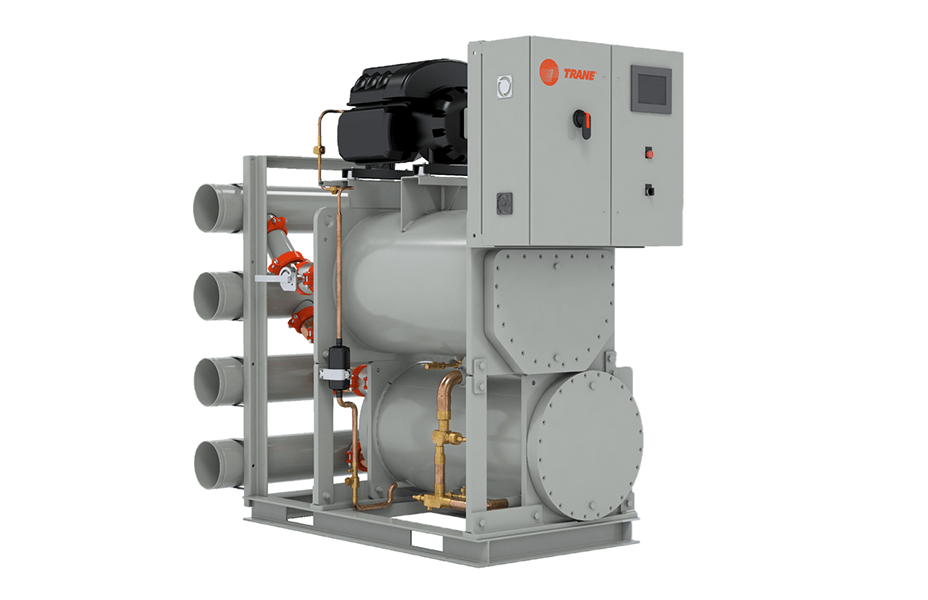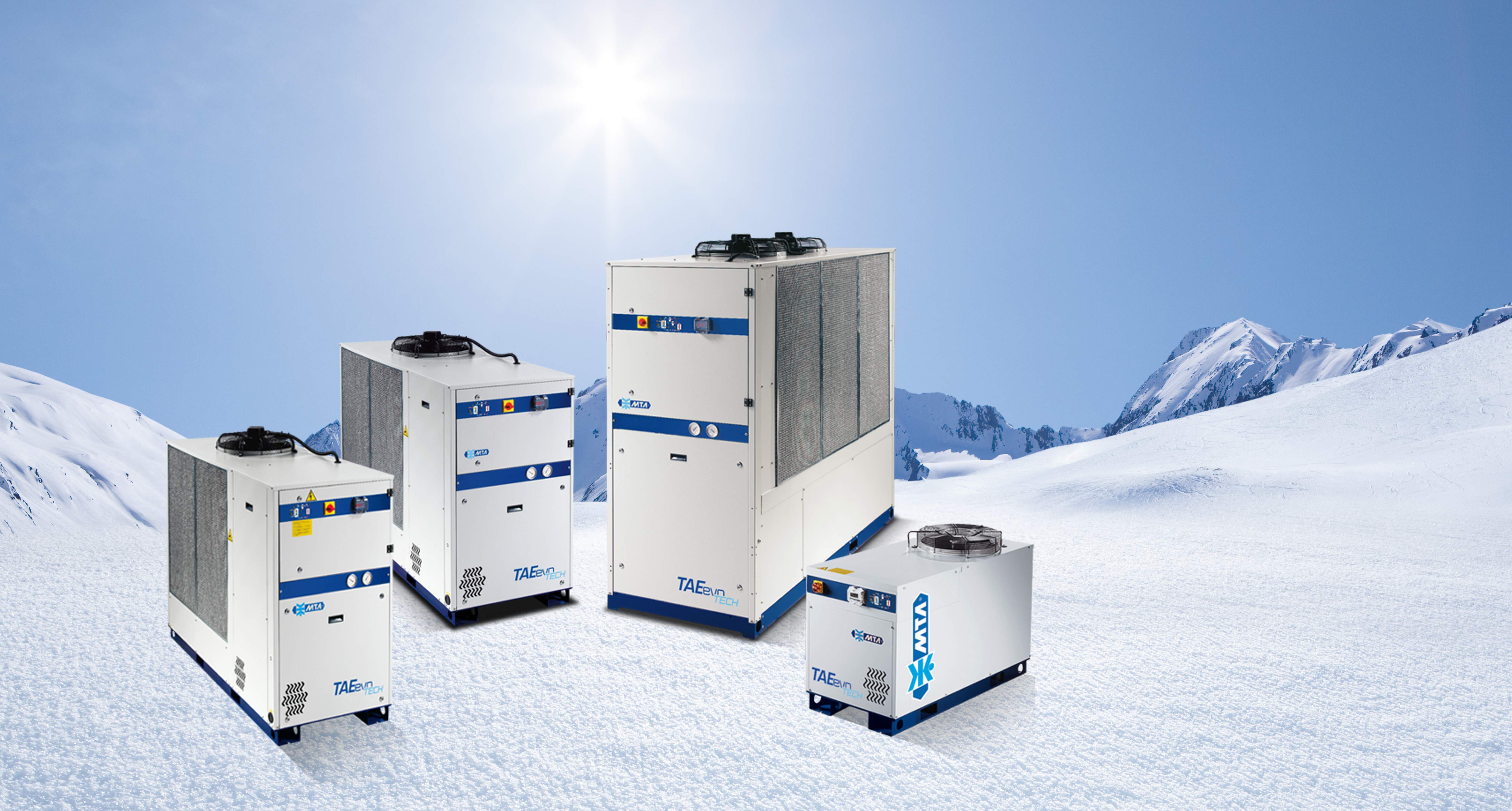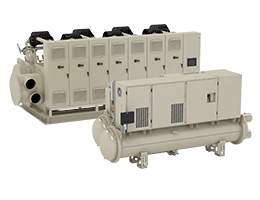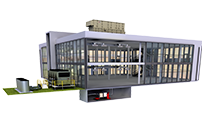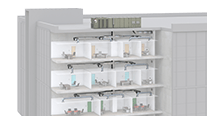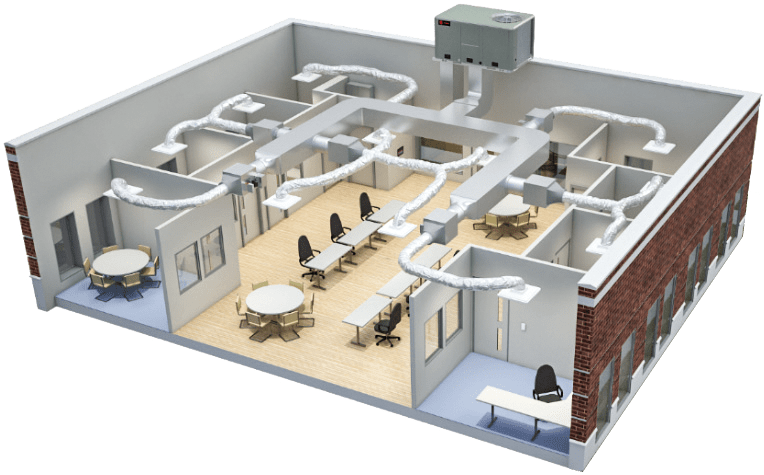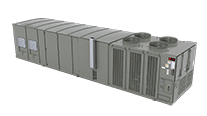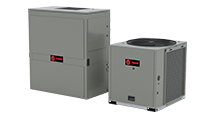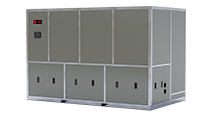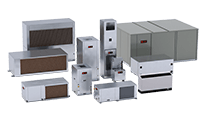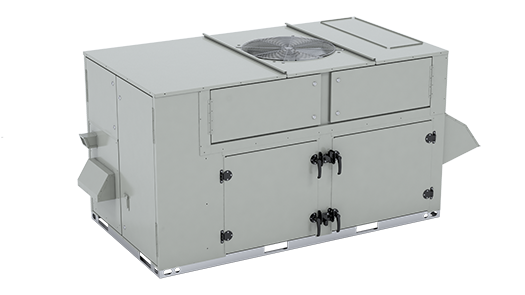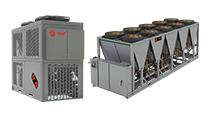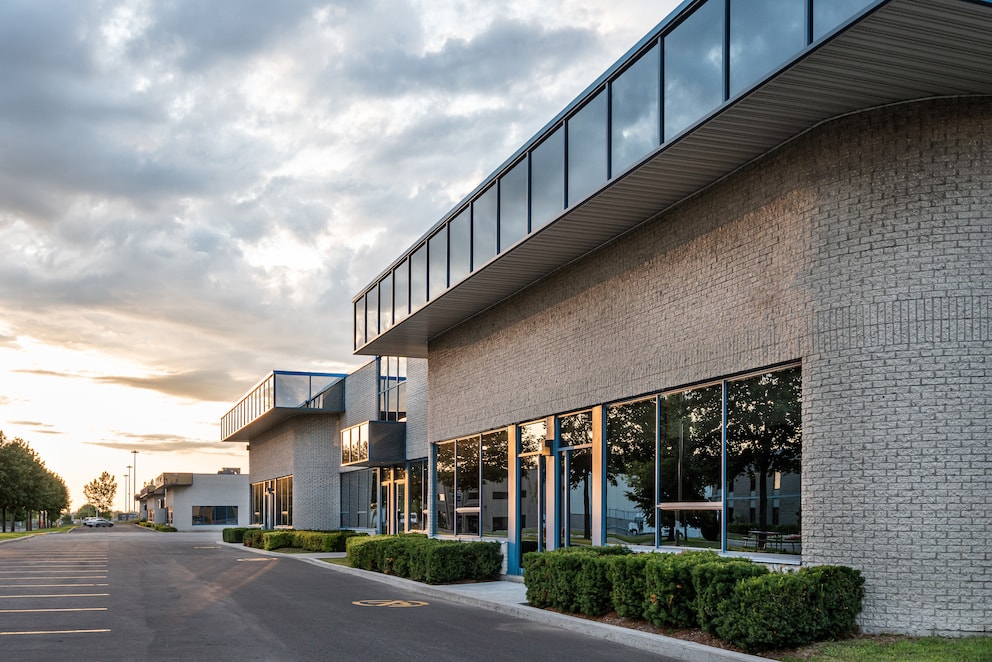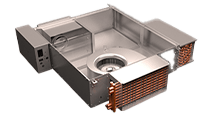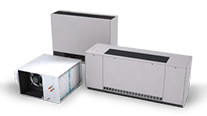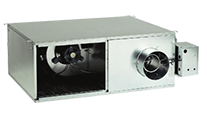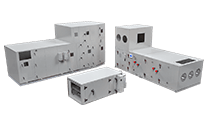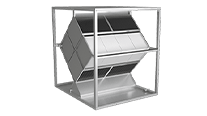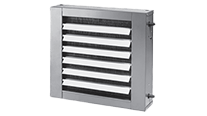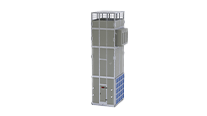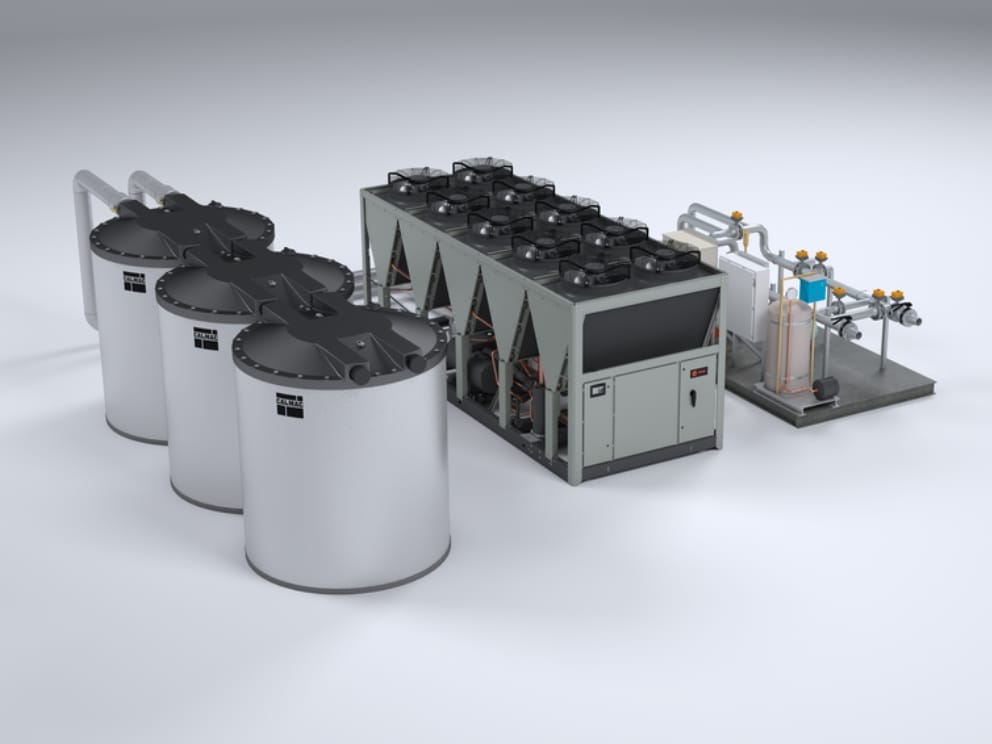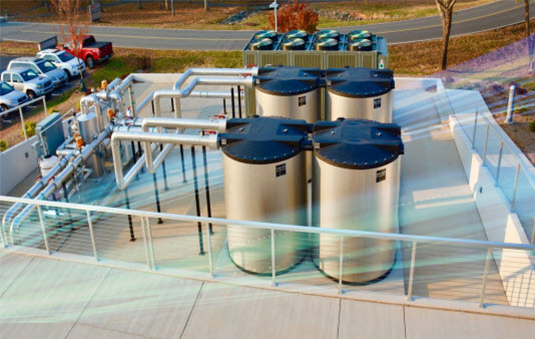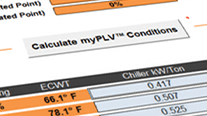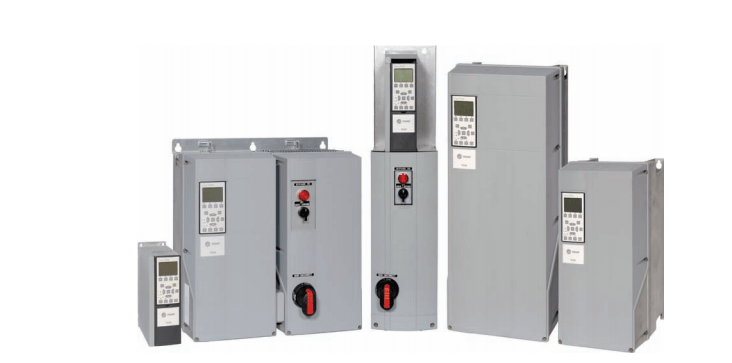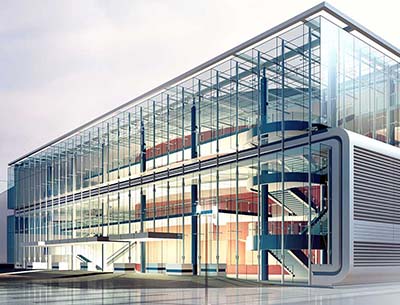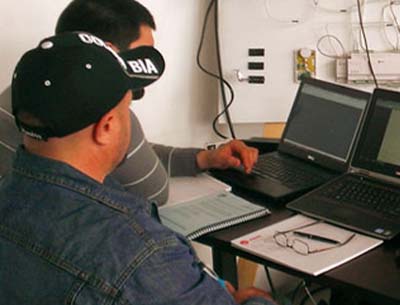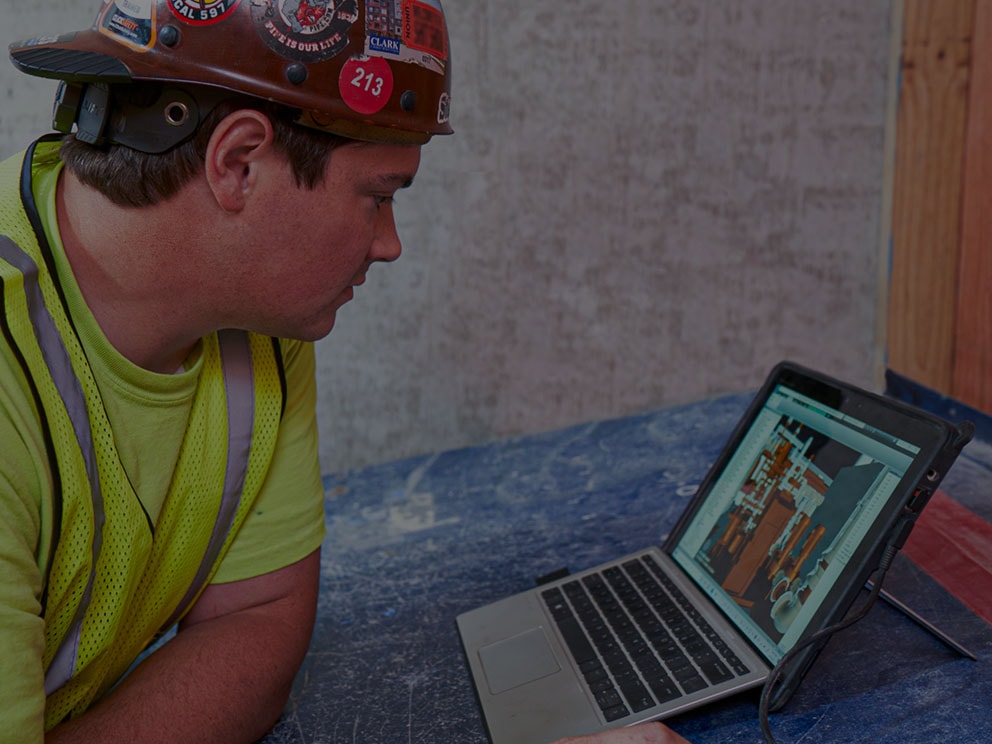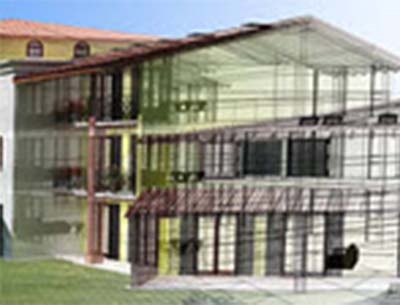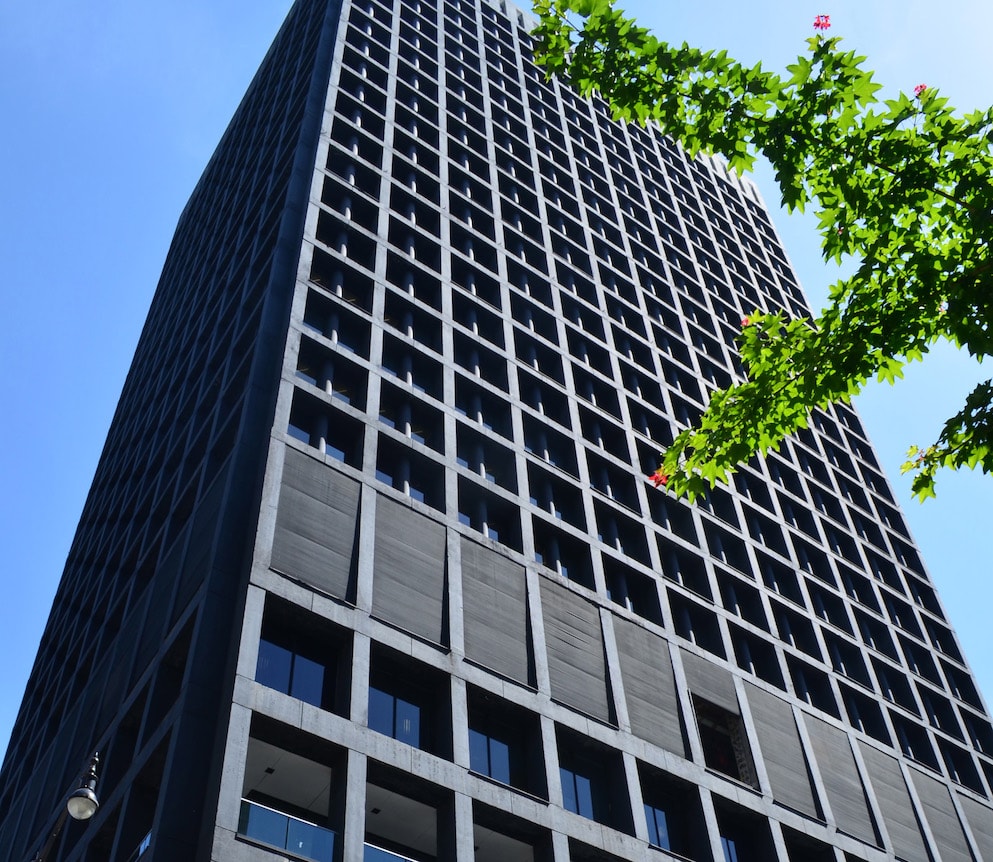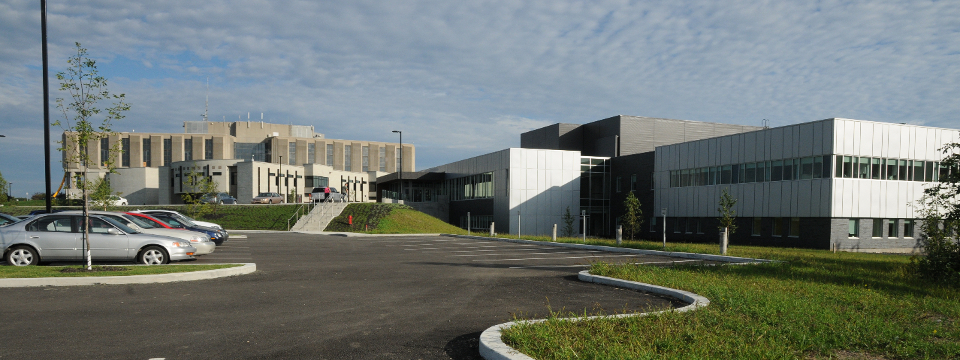
Challenge
As the Hopital Cité de la Santé, Laval, made plans for an extension to its existing hospital building, facility managers outlined their criteria for a new HVAC system. To reduce energy consumption and carbon emissions, a geothermal system was specified. The hospital also required a boiler, for redundancy and back up, due to the critical nature of the facility’s operation.
Solution
Having good knowledge of geothermal systems, but without similar installation in their other facilities, it was critical for the hospital to select a knowledgeable systems supplier. The job was bid to established manufacturers with geothermal experience. Based on the best product performance with the geothermal application, the company’s reputation for service excellence and a previous successful relationship, Trane was
selected as the hospital’s project supplier. Trane worked with the engineers to select a system that would provide the cold evaporator temperatures required for the application.
Central geothermal system offers energy efficiency
Geothermal systems use the earth’s renewable thermal energy for heating and cooling. These systems can generate significant operating cost savings and reduce carbon emissions. The Trane central geothermal system, designed for the hospital, combines the energy efficiency of geothermal with the benefits of a centralized heating, cooling and air handling system to provide an even more efficient and comfortable solution than traditional geothermal systems.
The Trane central geothermal system consists of two chillers coupled with a closed, ground geothermal loop which exchanges heat with the earth. The system offers high energy efficiency, and with all major equipment centrally located in the mechanical room, provides the additional benefit of centralized service and maintenance. In addition, the quiet operation of the system helps to ensure a restful environment for patients and staff.
Chillers provide high-performance and heat recovery
After reviewing a variety of options, two Trane lowtemperature Series R™ Helical Rotary Water-Cooled Chillers
(RTWD), with water-to-water heat pump controls and heat recovery capability, were installed. The proven reliability and flexible design of the Trane rotary chiller makes it a perfect match for high-performance applications, such as the hospital’s geothermal system.
With fewer moving parts and a low-speed/direct drive compressor, the advanced helical rotary chiller improves
energy efficiency and requires less maintenance. The chiller also provides consistent performance to enable the hospital’s mission critical operations.
The RTWD is engineered to maintain tight tolerances for precise temperature control. The chillers can be configured to produce leaving-evaporator solution temperatures as low as 10°F (-12°C), making it ideal for the geothermal application. The RTWD is also well suited for energy-saving heat recovery.
Control application enables optimal system performance
A Trane® Tracer Summit™ building automation system (BAS) provides integrated control, allowing the building operator to perform daily tasks, such as responding to alarms, viewing reports and trends, and custom programming. Facility managers use the Chiller Plant Control application to commission an extensive sequence of operations to achieve the highest level of system performance and ensure optimal energy management. Trane-provided training on the operation and programming of the BAS enables operators to take advantage of their control system’s full capabilities.
Service keeps systems running at their best
The geothermal chillers include a five-year parts and labor warranty, and a service contract. Under the agreement, factory authorized technicians perform periodic maintenance needed to keep the systems running at their best, eliminating unplanned downtime for the critical hospital operations and helping to avoid costly emergency service calls.
Results
The Trane central geothermal system installed for the extension of the Hopital Cité de la Santé, Laval, is keeping patients, staff and visitors comfortable, while helping the CSSS Laval achieve its energy performance and sustainability objectives. The system has lowered energy costs and reduced greenhouse gas emissions, achieving points for LEED certification. The efficient geothermal system has operated without failure, making use of the hospital’s backup system unnecessary, even at temperatures as low as -28°C (-18°F) in the Montreal Region.


